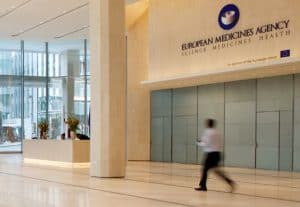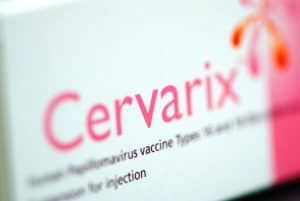Gardasil approved in Europe
pharmafile | September 22, 2006 | News story | Sales and Marketing | Gardasil
Sanofi Pasteur MSD's Gardasil has been approved as the first ever vaccine to prevent women developing cervical cancer, which remains a major killer.
Despite screening for early detection, cervical cancer is the second most common cause of death from cancer (after breast cancer) among women aged 15-44 in Europe.
More than 33,000 women are diagnosed with the cancer in Europe every year, with nearly half dying from the disease.
In the UK, the lives of as many as 3,000 women could be saved every year thanks to the vaccine.
Gardasil has been in a head-to-head race with a rival vaccine, GSK's Cervarix, but has now followed up its first-to-market status in the US by beating Cervarix to approval in Europe as well. GSK says Cervarix should gain European approval in the first half of 2007.
Sanofi Pasteur MSD's vaccine works by targeting the human papillomavirus (HPV) which in its different strains is responsible for most cases of the disease.
Prof Margaret Stanley, of the University of Cambridge, UK, commented: "Gardasil's arrival is excellent news. In time, human papillomavirus vaccination should save many women from dying from cervical cancer."
Gardasil treats four different strains of the disease types 6, 11, 16 and 18, and has been shown to prevent the virus developing in 100% of women given the injection.
Prof Stanley says the vaccine will also prevent many cases of cervical lesions, which can be potentially pre-cancerous, which currently have to be detected through screening programmes and surgically removed.
"Just imagine the many women who will avoid having abnormal screening results and undergoing medical follow up or surgical removal of these lesions. Targeting the four types 6, 11, 16 and 18 strengthens this important additional and early benefit.
"Furthermore, fewer women should undergo disfiguring surgical removal of vulvar pre-cancer. Preventing the vast majority of genital warts, which are a terrible burden for patients and health care resources alike, should complete the early benefit."
Human papillomavirus is very common, with 70% of sexually active people estimated to become exposed at some point in life, often as adolescents or young adults.
It is estimated that among HPV diseases, types 6, 11, 16 and 18 together cause 75% of cervical cancers, nearly all vulvar and vaginal cancers, half of all potentially pre-cancerous cervical lesions, and the majority of pre-cancerous vulvar and vaginal lesions and genital warts cases in Europe.
"The fact that it has taken just nine months for Gardasil to gain approval is for us testament to the vaccines significance for womens health, and the strength of the clinical trial data on which the filing dossier was based," said Didier Hoch, president Sanofi Pasteur MSD.
"Surveys show that women and physicians understand and recognise the benefit of a human papillomavirus vaccine that can prevent cervical cancer and other human papillomavirus diseases. Encouraged by excellent expert feedback we will now do all we can to make Gardasil available across Europe as soon as possible," he concluded.
Access to the vaccine is of crucial importance, and the decision of governments across Europe to pay for an immunisation programme would guarantee that many women would benefit.
Women will soon be able to pay privately for the injection at clinics for around 65, but Sanofi Pasteur MSD and campaigners want to see governments providing it free of charge.
The UK's Department of Health says it is currently seeking expert advice from the joint committee on vaccination and immunisation on the efficacy, safety and benefits that HPV vaccines may offer.
Related Content

EMA committee recommends five drugs for approval
Cancer and diabetes treatments are among those given the go ahead in the latest round …

MHRA: Cervarix ‘in clear’
Cervarix, a key drug in the UK government’s human papillomavirus (HPV) vaccination programme, has been …

AstraZeneca’s Fluenz chosen for wider flu immunisation
The UK has chosen AstraZeneca’s Fluenz to extend the country’s flu vaccination programme. The health …








